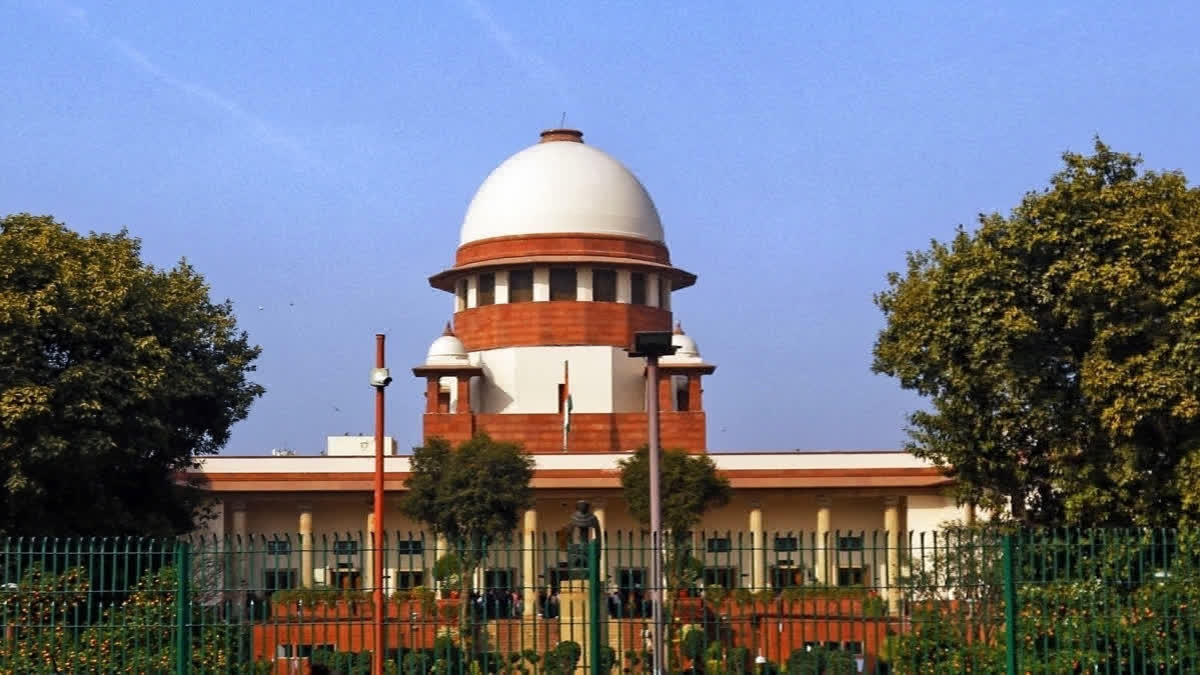New Delhi: The Supreme Court on Wednesday said while the courts have recognised the right to be considered for promotion as not only a statutory right but also a fundamental right, there is no fundamental right to the promotion itself.
A bench of Justices P S Narasimha and Sandeep Mehta said that it is a well-settled principle that promotion becomes effective from the date it is granted, rather than from the date a vacancy arises or the post is created.
"While the courts have recognized the right to be considered for promotion as not only a statutory right but also a fundamental right, there is no fundamental right to the promotion itself," said the bench.
The bench said while it recognizes Dr Amal Satpathi right to be considered for promotion, which is a fundamental right under Articles 14 and 16(1) of the Constitution of India, he does not hold an absolute right to the promotion itself.
The bench said that promotion only becomes effective upon the assumption of duties on the promotional post and not on the date of occurrence of the vacancy or the date of recommendation. "Considering that respondent No. 1 (Satpathi) superannuated before his promotion was effectuated, he is not entitled to retrospective financial benefits associated with the promotional post of Chief Scientific Officer, as he did not serve in that capacity," said the bench.
The bench said upon a bare perusal of Rule 54(1)(a) of the West Bengal Service Rules, it is clear that promotion cannot be retrospectively granted after retirement, as it requires the actual assumption of duties and responsibilities of the promotional post.
"In the present case, since respondent No. 1 superannuated before the final approval of his promotion, he could not have formally assumed the charge of the promotional post of Chief Scientific Officer," it said.
The apex court said, in the instant case, it is evident that while respondent Satpathi was recommended for promotion before his retirement, he could not assume the duties of the Chief Scientific Officer. “Rule 54(1)(a) of the West Bengal Service Rules, clearly stipulates that an employee must assume the responsibilities of a higher post to draw the corresponding pay, thus, preventing posthumous or retrospective promotions in the absence of an enabling provision”, said the bench.
The apex court’s judgment came on an appeal filed by the West Bengal government. The apex court reversed the Calcutta High Court's judgment delivered on February 1, 2023, which upheld the West Bengal Administrative Tribunal's order, holding the decision as unsustainable in the eyes of the law.
The tribunal held that Satpathi, though not entitled to retrospective promotion after his superannuation, should be awarded notional financial benefits for the promotional post of Chief Scientific Officer as of his retirement date i.e. December 31, 2016. The state government said no financial benefits, even on a notional basis, were admissible to Satpathi, who never assumed charge of the promotional post.
The state government said the final approval for the Chief Scientific Officer position was granted on January 4, 2017, after his superannuation on December 31, 2016.
Satpathi had contended that he had been serving as Principal Scientific Officer since March 24, 2008, and could have been promoted to Chief Scientific Officer as early as in the year 2013, if the department had submitted a timely proposal to fill up the vacancy.
The apex court said: “The judgment dated 1st February 2023 passed by the High Court of Calcutta and the judgment dated 26th June, 2019 passed by the Tribunal are unsustainable in the eyes of law and are hereby reversed and set aside."



